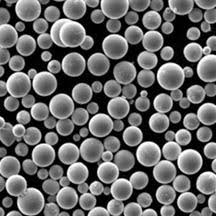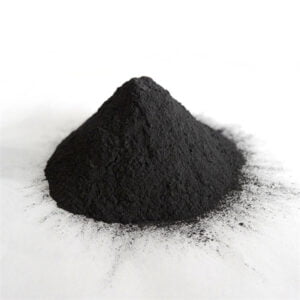stainless steel 304 Powder for 3D Printing
304 powder is a form of stainless steel powder that is widely used in various industries due to its exceptional properties. It is composed of iron, chromium, and nickel, which give it excellent corrosion resistance, high strength, and good formability. The powder form allows for easy processing and customization according to specific requirements.
Low MOQ
Provide low minimum order quantity to meet different needs.
OEM & ODM
Provide customized products and design services to meet unique customer needs.
Adequate Stock
Ensure fast order processing and provide reliable and efficient service.
Customer Satisfaction
Provide high quality products with customer satisfaction at the core.
share this product
Table of Contents
1. Introduction To 304 Powder
304 powder is a form of stainless steel powder that is widely used in various industries due to its exceptional properties. It is composed of iron, chromium, and nickel, which give it excellent corrosion resistance, high strength, and good formability. The powder form allows for easy processing and customization according to specific requirements.
2. Composition And Properties
304 powder primarily consists of iron, with approximately 18% chromium and 8% nickel. These alloying elements contribute to its corrosion resistance and durability. Additionally, it contains small amounts of carbon, manganese, phosphorus, sulfur, and silicon. The combination of these elements results in a material with remarkable mechanical and chemical properties.
Some key properties of 304 powder include:
- Corrosion resistance: 304 powder exhibits excellent resistance to corrosion from a wide range of substances, including water, acids, and alkalis.
- Strength and durability: It has high tensile strength, making it suitable for applications that require robust and long-lasting components.
- Formability: 304 powder can be easily formed into different shapes, allowing for versatility in manufacturing processes.
- Heat resistance: It maintains its strength and structural integrity even at elevated temperatures.
- Hygienic properties: Due to its non-porous surface, it is easy to clean and maintain sanitary conditions in applications such as food processing.

3. Industrial Applications
304 powder finds extensive use in various industries. Let’s explore some of its prominent applications:
Automotive Industry
In the automotive sector, 304 powder is utilized in the manufacturing of exhaust systems, mufflers, and other components exposed to corrosive gases and liquids. Its resistance to oxidation and high-temperature environments makes it an ideal choice for these applications, ensuring longevity and reliability.
Food Processing
The food processing industry demands materials that meet stringent hygiene and corrosion resistance requirements. 304 powder is widely employed in food processing equipment, such as tanks, pipes, and fittings. Its smooth surface and resistance to food acids and chemicals make it a preferred choice, ensuring the integrity and safety of food products.
Chemical Industry
304 powder is extensively used in the chemical industry due to its resistance to various corrosive substances. It is employed in the construction of reactors, storage tanks, and pipelines for handling chemicals and acids. The material’s ability to withstand corrosive environments and retain its structural integrity contributes to safe and efficient chemical processes.
Architecture And Construction
In architecture and construction, 304 powder finds applications in the fabrication of structural components, handrails, and decorative elements. Its aesthetic appeal, combined with corrosion resistance, makes it an excellent choice for both interior and exterior applications. Moreover, its formability allows for intricate designs and customization according to architectural requirements.
Aerospace Sector
The aerospace industry requires materials that can withstand extreme conditions, including high temperatures, vibrations, and corrosive environments. 304 powder is utilized in aircraft components, such as exhaust systems, brackets, and fasteners, due to its excellent combination of strength, heat resistance, and corrosion resistance. It plays a vital role in ensuring the safety and reliability of aerospace systems.
4. Advantages Of Using 304 Powder
304 powder offers several advantages over other materials, making it a preferred choice in many industrial applications. Some notable benefits include:
- Corrosion resistance: The high chromium and nickel content provide exceptional resistance to corrosion, ensuring durability and longevity.
- Cost-effectiveness: 304 powder offers a cost-effective solution for various applications due to its availability and wide range of uses.
- Versatility: Its formability allows for customization and adaptability to different manufacturing processes and design requirements.
- Hygienic properties: The non-porous surface of 304 powder makes it easy to clean and maintain in industries with strict hygiene standards.
- Recyclability: Stainless steel, including 304 powder, is highly recyclable, contributing to environmental sustainability.
5. Challenges And Limitations
While 304 powder boasts numerous advantages, it also has some limitations to consider. These include:
- Moderate temperature limitations: While it exhibits good heat resistance, prolonged exposure to high temperatures may lead to a reduction in mechanical properties.
- Sensitivity to certain chemicals: 304 powder may be susceptible to specific corrosive substances, such as chlorides, under certain conditions. Proper material selection is crucial in such cases.
- Magnetic properties: Unlike some stainless steel alloys, 304 powder is generally magnetic, which may impact its suitability for certain applications.
6. Best Practices For Handling And Storage
To maximize the performance and longevity of 304 powder, it is important to follow best practices for its handling and storage. Consider the following guidelines:
- Store the powder in a clean, dry, and well-ventilated area to prevent moisture and contamination.
- Handle the powder with clean gloves to avoid transferring oils and other substances that may affect its properties.
- Keep the powder away from strong acids, alkalis, and chloride-containing substances to minimize the risk of corrosion.
- Regularly inspect the powder for any signs of damage or contamination before use.
7. Future Trends And Innovations
As technology advances and new industrial challenges emerge, the development of stainless steel powders like 304 powder continues. Researchers and manufacturers are exploring ways to further enhance its properties, expand its applications, and optimize its processing techniques. Future trends may include improved heat resistance, increased strength, and the development of eco-friendly manufacturing processes.
8. Conclusion
In conclusion, 304 powder is a versatile and reliable material widely used in various industrial applications. Its unique combination of corrosion resistance, strength, formability, and hygienic properties makes it an excellent choice for industries such as automotive, food processing, chemical, architecture, and aerospace. By understanding its composition, properties, and best practices, you can make informed decisions when considering 304 powder for your specific needs.
Frequently Asked Questions (FAQs)
1. Is 304 powder suitable for outdoor applications? Yes, 304 powder is commonly used in outdoor applications due to its corrosion resistance and durability. However, prolonged exposure to harsh environments may require additional protective measures.
2. Can 304 powder be welded? Yes, 304 powder can be welded using common welding techniques. However, it is important to follow proper welding procedures to ensure optimal results and maintain its corrosion resistance.
3. Can 304 powder be used for medical applications? While 304 powder is not typically used for direct medical implants, it is often employed in medical equipment and devices where corrosion resistance is required, such as surgical instruments and hospital equipment.
4. How does 304 powder compare to other stainless steel alloys? 304 powder is one of the most commonly used stainless steel alloys due to its balanced combination of properties, cost-effectiveness, and availability. However, there are other alloys with specialized properties that may be more suitable for specific applications.
5. Is 304 powder recyclable? Yes, stainless steel, including 304 powder, is highly recyclable. Recycling stainless steel helps conserve resources and reduce environmental impact.
Get Latest Price
About Xmetto
Product Category
HOT SALE
CONTACT US
Any questions? Send us message now! We’ll serve your request with a whole team after receiving your message.








